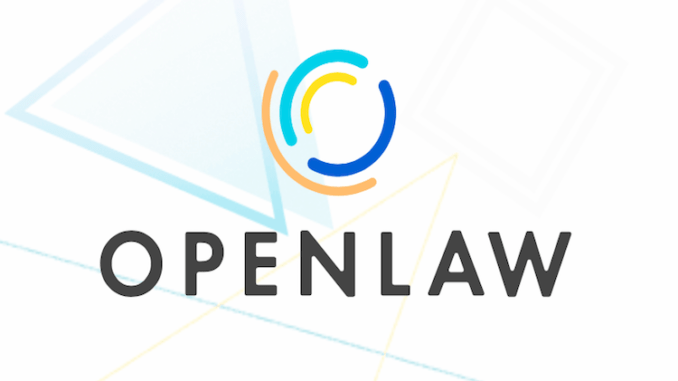
New York-based smart contract pioneer, OpenLaw, has open sourced core components of its software library in the hope that ‘a network of applications can flourish’, driven by the market making use of its software.
OpenLaw is building the ‘essential infrastructure for the legal and blockchain industry’, which includes a set of tools and APIs enabling legal agreements to be incorporated into blockchain-based applications and helping legal service providers to ‘streamline their operations’.
The open source core libraries of OpenLaw can be found here on GitHub, if you fancy a try. (Though it’s worth noting that this is definitely not territory for non-coders, even if the end product, i.e. a prepared smart contract, will be easy to use. If you are a lawyer and can’t code, but still want to have a go, please contact your nearest legal engineer.)
The move to open source some of its core software is ‘true to our project’s name’ says the company, but the bigger picture is that the developers at OpenLaw – and many other startups – can only do so much.
A company designed to help the legal market move into the world of smart contracts needs a lot of people to get involved and to build what they want and need, or simply to experiment.
While OpenLaw can keep producing great model smart contracts, some of the lawyers out there in the real world know what it is they want to create that is specific to their needs, while others may not know but would perhaps like their innovation teams to help them create something they can experiment with and perhaps introduce to their clients.
It’s not the first smart contract company to open source key elements of its software. Rival player, Clause, also open sourced some of its core code back in November last year.
Meanwhile, legal AI company, LexPredict, also open sourced elements of its doc analysis platform in July 2017.
Commenting on the move, OpenLaw, which was founded by Aaron Wright of the Cardozo Law School and David Roon, who works at ConsenSys, said the following: ‘With this release, we’re taking another step towards creating a comprehensive open source ecosystem to increase access to justice and streamline the $1 trillion global legal ecosystem.’
It looks like a very sensible step. AL will be interested to see what people end up making from the open sourced software. Let us know.